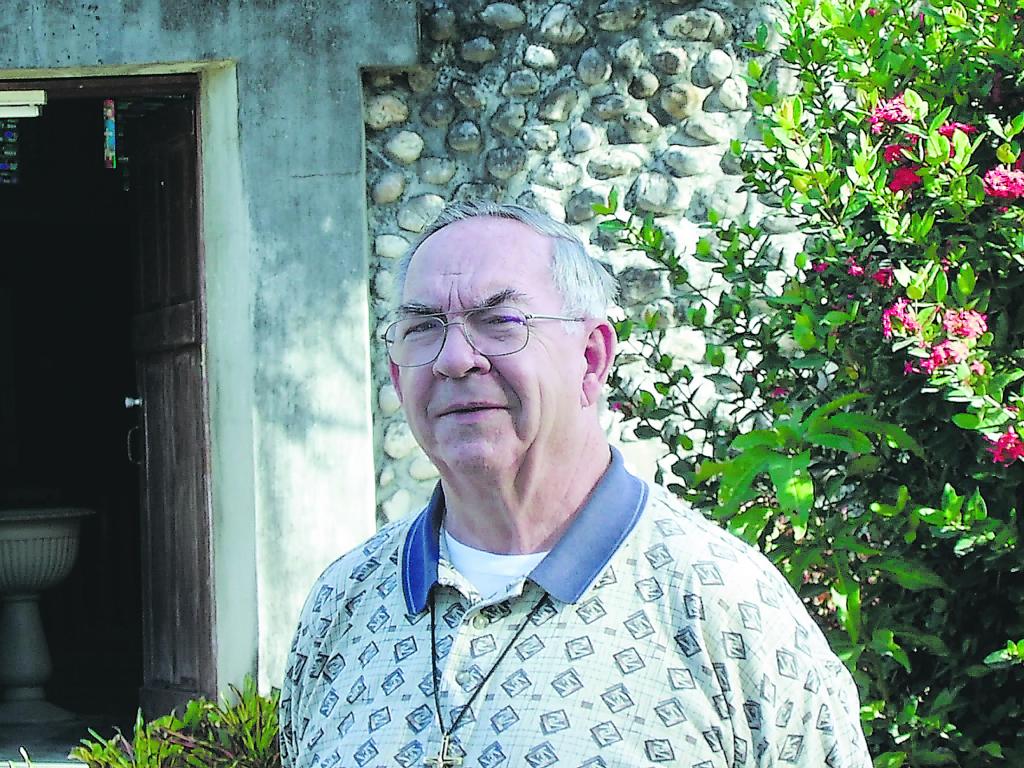Confined by doctor’s orders to rest and recover at the Oblate Missions Office in Lowell, Mass., the Rev. Real ”Joe” Corriveau helps answer phones and accept donations for missions in Haiti.
Corriveau, a Winthrop native, has spent 46 years as a missionary in Haiti.
A priest with the Missionary Oblates of Immaculate Mary, he was assigned in 1963 to the island nation, where the native French he grew up with stood him well, and where he swiftly picked up Creole.
The Oblates are a Roman Catholic religious order founded in France. Today the order has 4,400 members, including priests, brothers and those studying to join the order. They do missionary work in Africa, Europe, Asia, Latin America, Canada and the United States.
When the earthquake hit on Jan. 12, the 77-year-old Corriveau was in Lowell, recovering from hip replacement surgery. ”I miss being out there,” he said. ”My doctor says, ‘Take it easy. You need three or four months until you can go running around the ruins.’”
Ruins will greet him when he returns to the Port-au-Prince office where he is assistant administrator for the Oblate Province.
”We’re the biggest congregation in Haiti,” he said. They number about 130, of which 50 are seminarians.
Corriveau said one seminarian was killed in the earthquake, which struck while half the seminarians were attending a conference.
”The (building) collapsed, and he didn’t make it,” Corriveau said.
Photos on the Web site www.omiusa.org/ show the three-story provincial house that collapsed into rubble in the quake.
The St. Francis Men’s Association at St. Francis Church, Winthrop — a regular supporter of Corriveau’s work in Haiti — has sent him almost $40,000 from their Bingo proceeds over the past 20 years. Other local groups help him, as well.
”He’s kind of a favorite son, and we’ve always taken care of him,” said Maurice Berube, St. Francis Men’s Association bookkeeper. ”If they have holy people on earth, he’s one of them.”
Corriveau said the mission work has resulted in coffee cooperatives, credit unions, soil conservation efforts, roads, small bridges, schools, medical clinics and running water in Haiti.
”We work with it all,” he said. ”We let people know what their rights and obligations are.”
Education has allowed the Haitians to take over the running of groups and organizations themselves — one of the tenets of the Oblate missions.
Among his other responsibilities, Corriveau is pastor of a new parish — ”Fond Oies” in French and ”Fondwa” in Creole — in the mountains between Leogane and Jacmel. Parishes on Haiti average 10,000 to 25,000 people.
Corriveau said the earthquake took the church, school, sisters’ quarters and orphanage.
He spoke to his parish assistant last weekend and heard that recovery has been slow and painful, but progressing nonetheless.
”Everything is down except one little small building, and that’s where he set up the service,” Corriveau said.
Corriveau is also chaplain to the 60- to 70-bed Canape Vert Hospital in Port-au-Prince.
Corriveau has second and third cousins — most named Fleury and Audet — whom he continues to see in the Winthrop area on his yearly vacation.
”Oblates don’t retire; we keep working,” Corriveau said. ”We’re like what Gen. Douglas MacArthur said to Congress about old soldiers: They never die; they just fade away.”
Send questions/comments to the editors.




Success. Please wait for the page to reload. If the page does not reload within 5 seconds, please refresh the page.
Enter your email and password to access comments.
Hi, to comment on stories you must . This profile is in addition to your subscription and website login.
Already have a commenting profile? .
Invalid username/password.
Please check your email to confirm and complete your registration.
Only subscribers are eligible to post comments. Please subscribe or login first for digital access. Here’s why.
Use the form below to reset your password. When you've submitted your account email, we will send an email with a reset code.